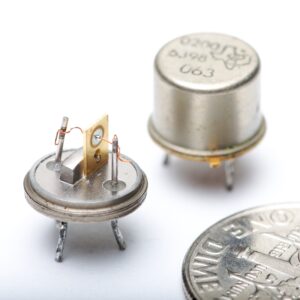Pre-dinner drink in Provence in ye olde days.
Quote of the Day
”It is actually one of Tom’s achievements that one envies him nothing, except possibly his looks, his talents, his money and his luck. To be so enviable without being envied is pretty enviable, when you think about it.”
- Simon Gray, a fellow-playwright, on Tom Stoppard
Musical alternative to the morning’s radio news
Regina Spektor | “Better”
Long-time favourite of mine.
Long Read of the Day
O Lucky Man
Anthony Lane’s masterly New Yorker review of Hermione Lee’s biography of the playwright Tom Stoppard. A good friend of mine, who has very good judgement in these matters, has been encouraging me to read the biography for ages, but I held off partly because it’s a massive tome but also because I have too much else that needs to be read first. In the end, I caved in and ordered it. And then came on Anthony Lane’s lovely review. This is how it opens:
In 2007, the playwright Tom Stoppard went to Moscow. He was there to watch over a production of his trilogy—“Voyage,” “Shipwreck,” and “Salvage,” collectively known as “The Coast of Utopia.” The trilogy had opened in London in 2002, and transferred to Lincoln Center in 2006. Now, in a sense, it was coming home. The majority of the characters, though exiled, are from Russia (the most notable exception being a German guy named Karl Marx), and, for the first time, they would be talking in Russian, in a translation of Stoppard’s text. Ever courteous, he wanted to be present, during rehearsals, to offer notes of encouragement and advice. These were delivered through an interpreter, since Stoppard speaks no Russian. One day, at lunch, slices of an anonymous meat were produced, and Stoppard asked what it was. “That is,” somebody said, seeking the correct English word, “language.”
The meat, of course, was tongue, and the anecdote—one of hundreds that Hermione Lee passes on to us in her new biography, “Tom Stoppard: A Life” (Knopf)—is perfect to a fault. If any writer was going to be on the receiving end of so deliciously forgivable a mistake, it had to be Stoppard. Likewise, at a performance of his 1974 play, “Travesties,” how was he to know that the handsome fellow he was chatting with was not, as he believed, his French translator but was, in fact, Rudolf Nureyev? Is it somehow in Stoppard’s nature that Stoppardian events befall him, or is it only in his telling that they come to acquire that distinctive lustre? He emerges from Lee’s book as a magnetic figure to whom others cluster and swarm, and around whom happy accidents, chance encounters, new loves, and worldly goods are heaped like iron filings.
This is a great read and a very perceptive review.
But now I have to go back to what I was reading before I wrote this — Kazuo Isiguro’s Klara and the Sun which I’m reading in an attempt to escape from the poverty of imagination that strikes us ordinary mortals when we try to think about what living with (or under?) intelligent machines might be like.
The US’s latest outbreak of hegemonic anxiety
This morning’s Observer column:
This week the American National Security Commission on artificial intelligence released its final report. Cursory inspection of its 756 pages suggests that it’s just another standard product of the military-industrial complex that so worried President Eisenhower at the end of his term of office. On closer examination, however, it turns out to be a set of case notes on a tragic case of what we psychologists call “hegemonic anxiety” – the fear of losing global dominance.
The report is the work of 15 bigwigs, led by Dr Eric Schmidt, the former CEO of Alphabet (and before that the adult supervisor imposed by venture capitalists on the young co-founders of Google). Of the 15 members of the commission only four are female. Eight are from the tech industry (including Andy Jassy, Jeff Bezos’s anointed heir at Amazon); two are former senior Pentagon officials; and the tech sector of the national intelligence community is represented by at least three commissioners. Given these establishment credentials, the only surprising thing is that the inquiry seems to have been set up during Trump’s presidency, which suggests that it was organised by the “deep state” during the hours of one to four AM, when Trump was generally asleep…
Putting things in perspective
Matt Webb has been reading Tracy Kidder’s lovely book, The Soul of a New Machine, published in 1981, about the creation of a new minicomputer by Data General. This led to an interesting reflection on change and progress.
It starts with a paragraph from the book about strange things called ‘transistors’.
“Transistors, a family of devices, alter and control the flow of electricity in circuits; one standard rough analogy compares their action to that of faucets controlling the flow of water in pipes. Other devices then in existence could do the same work, but transistors are superior. They are solid. They have no cogs and wheels, no separate pieces to be soldered together; it is as if they are stones performing useful work.”
Reading that, says Matt,
it’s so clear that 1981 is closer to 1947 (when the transistor was invented) than today.
Matter, without movement, can perform useful work! Solid state. This idea is insanity when you think about it, and Kidder in 1981 was able to call that out.
Two transistors make a NAND gate, and a NAND gate is both a physical thing and a mathematical operation and – with many connected together – can store numbers, add numbers, discriminate between numbers, and so on, numbers being both data and instructions to perform more operations.
The solution takes the material form of a circuit called a NAND gate, which reproduces the “not and” function of Boolean algebra. The part costs eight cents, wholesale.
The latest iPhone has 11.8 billion transistors. So the chip at the heart of each phone is $1.4 billion in parts, no margin. That’s 1981 prices, 2021 money accounting for inflation.
Matt thinks that Kidder’s book is “a terrifically told story mainly about personalities and teams, and also about computers”. It is.
As a kid building radios by hand in the 1950s, I bought a transistor for a circuit I was making. Yes, you read that correctly, “a transistor”. A single one. This is what it looked like.
And now my iPhone has 11.8 billion of the things. How did that happen?
I am a Neanderthal and I resent being compared to incompetent Republican governors
Lovely piece by Anna Book triggered by a report that the White House Press Secretary on Thursday defended President Biden calling the decision of two GOP governors to lift mask mandates as ‘Neanderthal thinking’ after some conservatives took offence to the criticism.
Look, this is nothing new. We’re used to it. There’s a long history here. We let you modern Homo sapiens romanticize our culture for your kids’ entertainment (Croods), appropriate our hard-earned achievements (controlling FIRE!), and relegate us to history as uncivilized brutes who lack intelligence and language (take a bow, H.G. Wells). But comparing us to someone like Texas Governor Greg Abbott is a step too far, Mr. President. You just crossed the line we drew in the sand, or more accurately, etched into the ice with our hand-crafted tools.
To describe the lifting of mask mandates as “Neanderthal thinking” is misleading and, quite frankly, insulting. It’s true that we didn’t have modern-day essentials like vegetable spiralizers and Pelotons, but we were never willfully ignorant. Is this a good time to mention the wind turbines?
See, contrary to popular belief, stupidity didn’t kill us. We probably died from a lack of immunity to new diseases, or as a result of climate change. Now, are we still the morons in this scenario? Because if you people are so intellectually superior, in the 40,000 intervening years, why haven’t you learned anything, like, gee, I don’t know, how not to flirt with extinction?
This blog is also available as a daily email. If you think this might suit you better, why not subscribe? One email a day, delivered to your inbox at 7am UK time. It’s free, and there’s a one-click unsubscribe if you decide that your inbox is full enough already!


